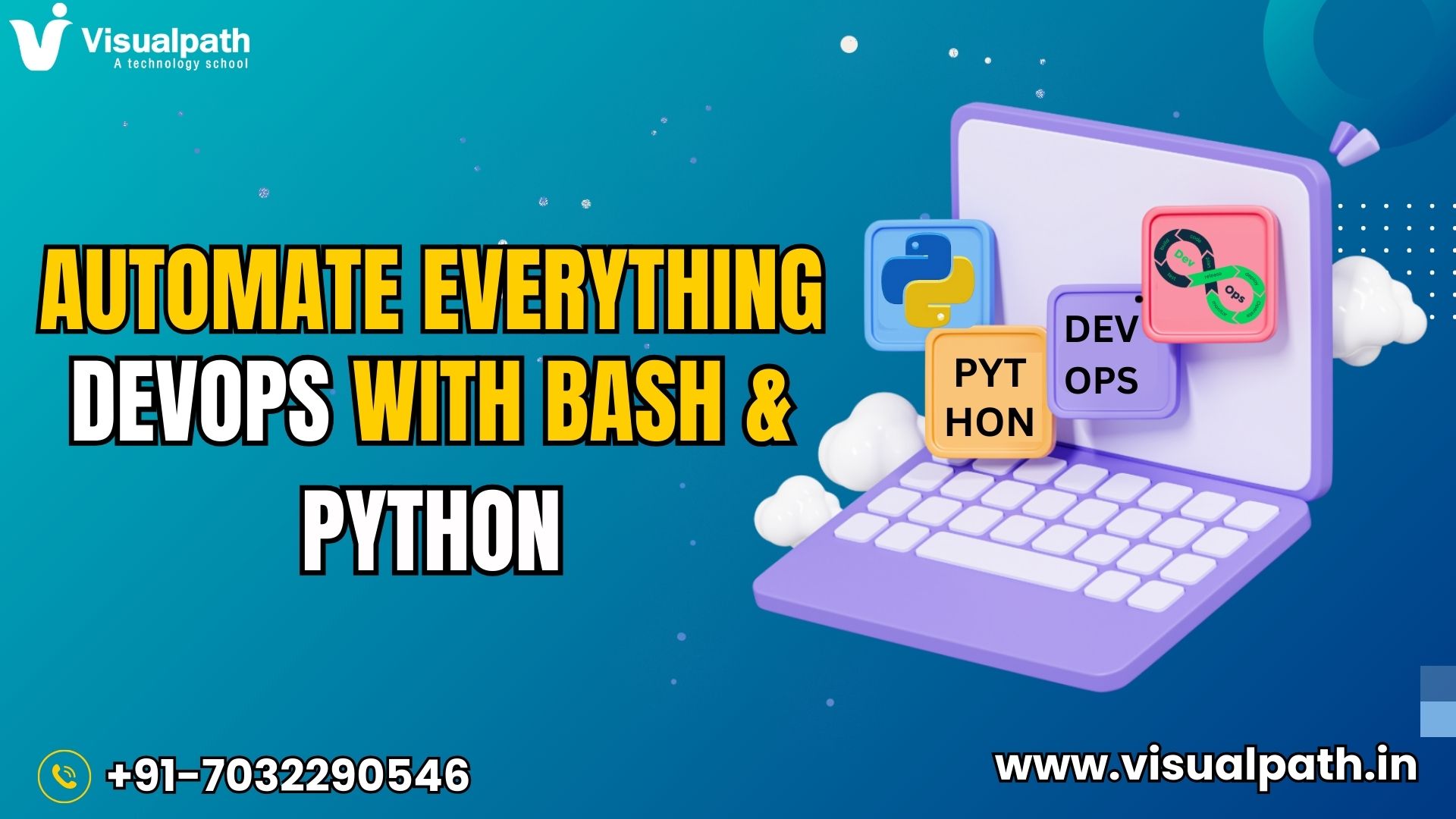DevOps with Bash & Python has become a powerful combination for modern automation. In an era where speed, consistency, and reliability are critical, learning these scripting tools is essential for both students exploring DevOps and IT professionals aiming to streamline operations. Bash offers quick control over system-level tasks, while Python brings the flexibility needed for complex workflows and integrations. Together, they empower you to automate everything—from deployments and configurations to cloud interactions and monitoring. If you’re ready to boost your DevOps skills, this dynamic duo is the perfect place to start.
Why Automation Is Essential in DevOps
DevOps emphasizes agility, collaboration, and continuous improvement. Manual processes often hinder these goals, leading to inefficiencies, inconsistencies, and deployment delays. Automation, on the other hand, creates streamlined workflows that can scale, adapt, and repeat with minimal intervention.
By automating tasks such as code deployment, infrastructure provisioning, monitoring, and testing, teams can focus on innovation rather than repetitive work. It also helps enforce consistency across environments, making it easier to identify and resolve issues quickly. DevOps Training
Bash: The Command Line Powerhouse
Bash is a widely-used scripting language in Unix-based systems, and it’s the go-to tool for managing and automating system-level tasks. It’s lightweight, easy to learn, and well-suited for writing quick scripts that control system behavior, manage processes, and handle file operations.
In DevOps environments, Bash is frequently used for server configuration, software installations, log monitoring, user management, and task scheduling. It’s ideal for automating shell commands that need to be executed frequently or as part of deployment pipelines.
Whether you’re working on a Linux server or integrating commands into a Jenkins pipeline, Bash scripts play a crucial role in keeping systems stable and processes efficient.
Python: The Swiss Army Knife of DevOps
While Bash excels at simple automation, Python is the language of choice when tasks grow more complex. Its clear syntax, large standard library, and vast ecosystem of third-party modules make it perfect for sophisticated DevOps workflows.
Python is extensively used for API integrations, cloud automation, monitoring tools, data processing, and advanced logic scripting. It fits naturally into Infrastructure as Code (IaC) workflows and is often employed in managing AWS, Azure, and other cloud platforms.
Its versatility allows teams to automate virtually any part of the DevOps lifecycle—from writing scripts that interact with cloud APIs to building internal tools for deployment and monitoring.
When to Use Bash vs. Python
Each language shines in different scenarios. Bash is perfect for straightforward, command-line-based tasks that involve managing files, directories, or services on Unix-like systems. Python, with its structured approach and broader capabilities, is better for complex tasks that involve external systems, APIs, or advanced logic.
A practical DevOps engineer often uses both in tandem: Bash for quick scripts and system commands, Python for automation that demands flexibility, clarity, and scalability.
Benefits of Learning Bash and Python Together
Learning both Bash and Python equips DevOps practitioners with a solid foundation to handle almost any automation challenge. Students and IT professionals who master these tools can:
- Automate tedious manual tasks
- Improve the speed and reliability of deployments
- Collaborate more effectively in cross-functional DevOps teams
- Increase their job market value and career flexibility
Having a working knowledge of both scripting languages also makes it easier to understand and customize existing automation scripts in open-source projects or within enterprise environments. DevOps Online Training
How to Start Your Automation Journey
To begin your automation journey, focus on real-world scenarios. Start with small scripts to handle routine tasks like backups, system updates, or environment setup. Gradually move to more complex challenges, such as automating cloud infrastructure provisioning or integrating scripts into CI/CD pipelines.
Pair your learning with tools like Git, Jenkins, Docker, and Kubernetes to gain hands-on experience. Working on projects that combine these technologies with Bash and Python will prepare you for practical roles in DevOps and cloud engineering.
Conclusion
DevOps success depends heavily on automation, and Bash and Python are essential tools for making it happen. They enable efficient, scalable, and reliable automation for everything from infrastructure setup to deployment workflows. Whether you’re just getting started in DevOps or you’re an experienced professional looking to sharpen your automation skills, learning these scripting languages is a smart investment in your future.
Trending Courses: MLOps, GCP DevOps, and Azure DevOps




